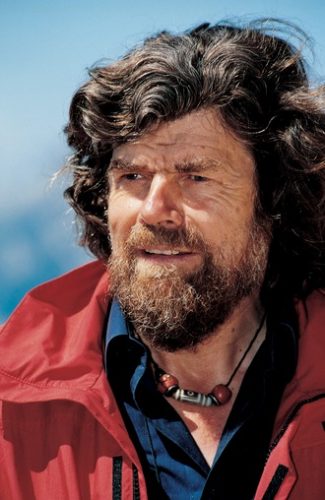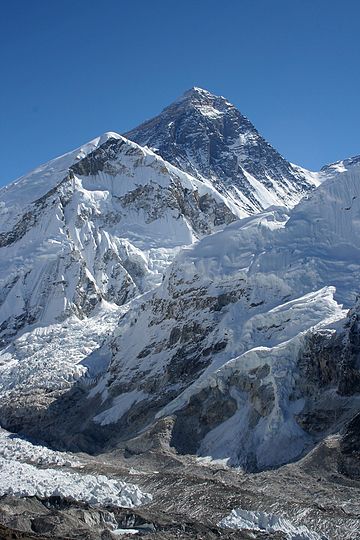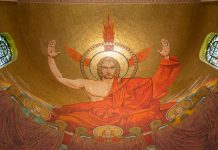
On this day, May 8, in 1978, Reinhold Messner and Peter Habeler stood on the highest peak in the world, Mount Everest, at 29,031.7 feet. To get any higher, you’d have to fly. Everest long remained unconquered, and was only scaled for the first time by Tenzig Norgay and Edmund Hillary in 1953. What made Messner’s and Habeler’s ascent singular was that they did it without supplemental oxygen, long considered impossible – but, then, that word is overused, as we saw with Bannister’s mile. Messner adopted from his youth an ‘alpine style’ of climbing, with light equipment, fast and agile, rather than the ‘siege tactics’ of laying assault to a peak with technology. After all, why not just jet pack up there?
Messner had other firsts: To scale all fourteen peaks over 8000 metres (26,000 feet); the first to scale a number of other ascents; the first to cross Antarctica and Greenland by foot (no snowmobiles or dogsleds), and perhaps the first to cross the Gobi Desert, solo (who knows about that one – the desert has secrets it does to give up easily). Watching an interview with the now-septuagenarian mountaineer, he does express some odd moral thoughts, that there is no ‘right and wrong’, only the decisions we make in the moment. But our nature is to help each other (Messner has rescued a number of fellow climbers), bred into us by evolution. Something, however, drove him to the top – whether right or wrong, only he, and ultimately God, can judge.
For a clearer moral example, in 1429, also on this day, Joan of Arc, a young, illiterate peasant girl, against significant odds, led the troops of France to lift the siege of Orleans, saving the throne of Charles VII, and France from English domination, which in turn changed the very direction of history (the Reformation and Revolution would have been quite different, if they happened at all, or at least the way they did). She would be put to death – betrayed and bereft – two years later, dying a martyr, with a courage the belied her nineteen years.
And we have already written on Catherine of Saint Augustine, who crossed the stormy Atlantic – a perilous journey in wind-driven wooden boats, held together by pitch and tar – to the wilds of Canada – then New France – a scrabbling group of colonists on the scraggy shores of Quebec, facing untold thousands of miles of wilderness, savage attacks, cruel winters, food shortages, and thousands of miles of icy cold storm tossed waters to anything resembling ‘civilization’. All to bring the benefits of that same civilization, not least the truth that sets us free, to this new land.
The human spirit is marvelous and wonderful, even unconquerable, and we, made in the imago Dei, do not rest easy, and we should scale what peaks God has waiting for us.
Semper altius!
(cf, source, wikipedia.org).











